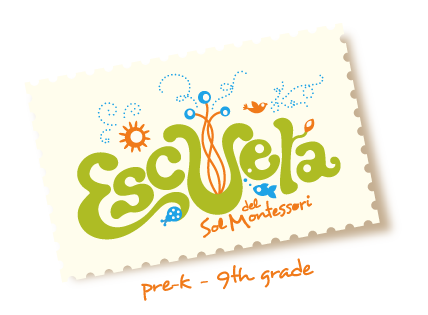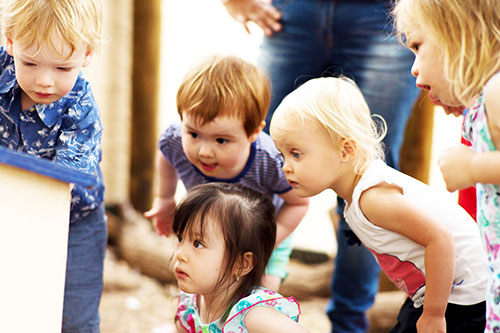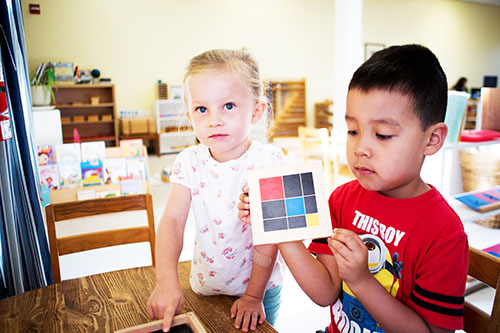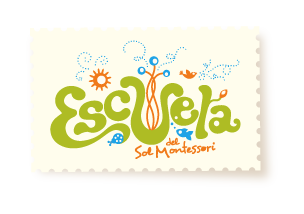The child in primary loves words and is busy absorbing language. Enriched vocabulary, poetry and prose reading, and word play are all part of the environment. The young child delights in learning to make letters and sounds that represent speech and to interpret those made by others. The keys to writing and reading are acquired with the joy of discovery.
In Elementary, children experiment with language and explore its power. Language is communication, social connection, debate, presentation, conflict resolution and humor. Elementary children, exercising their powers of reasoning and curiosity, learn the fascinating history of language from the distant past to the present. We show that language continually changes, and that it reflects history and culture, and the interconnected subjects of the classroom. The children become conscious of language wherever they go.
Adolescents are especially tuned to work surrounding personal dignity, creativity, and social justice. In Jr. High, language deepens into an important means of self-expression, and a vehicle for the transmission of cultural knowledge and memory, as well as a tool for communication and organizing. Language is pervasive: taking notes, outlines and essays, formatting, discourse-specific language, marketing, poetry, and editing – We know that the more one writes the better one becomes at it, but only with meaningful intent.
Grammar is made accessible to children with the aid of colorful materials that employ symbols familiar from their work in Primary. In etymology, word study (synonyms, affixes, compound words, etc.), and analysis of sentence structure and parts of speech, the children apply their vocabulary and creativity with language. At the same time, they become more conscious of its structure. Discoveries in grammar, word study, and etymology give rise to an awareness of spelling rules and patterns, and spelling practice is readily individualized focusing on each child’s skills and interests.
Reading and writing skills blossom throughout the elementary years, not only through spelling and grammar work, but through work in all subjects. Writing develops as children research, experiment and share what they have discovered. Creative writing allows children to acquire a valuable tool for self-expression. Reading becomes an important means to satisfy their interests. Witnessing older children reading and writing spontaneously, the younger ones are highly motivated to perfect language skills that need work. With carefully structured presentations and appealing follow-up work, the teacher and child work together to accomplish these goals.
Having acquired both the mechanics of language, and a sense of its history and spirit, the child then explores poetry, prose, drama, dialogue, discussion, and research, in oral as well as written forms. Book groups are introduced, and the children learn to have focused readings and discussions. Reading aloud to the children is a regular practice in elementary classrooms, and is encouraged at home as well.






